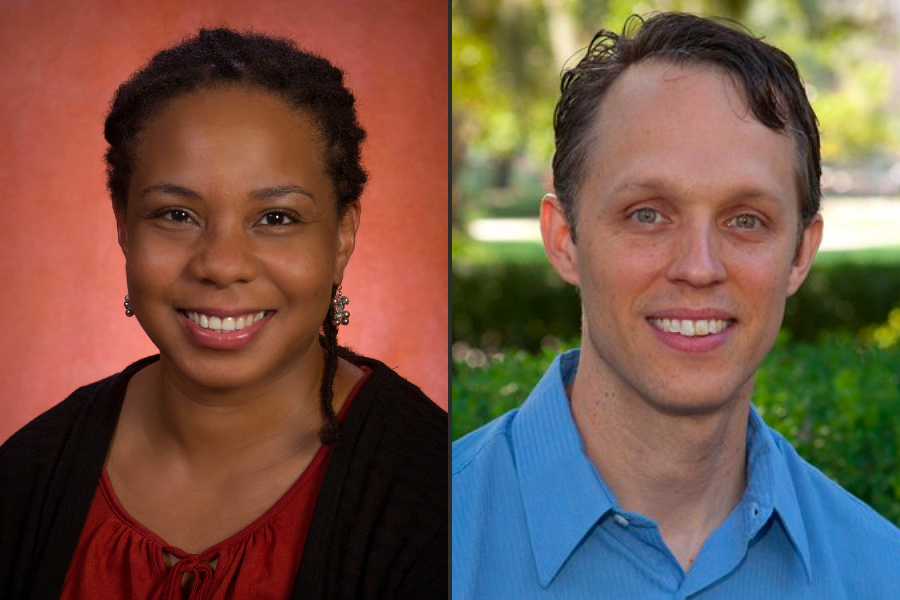
Two professors in Florida State University’s Department of Urban and Regional Planning received a collaborative grant for over a half-million dollars from the Global Ideas for U.S. Solutions team at the Robert Wood Johnson Foundation to pursue research on community climate change and health equity.
Assistant Professor Tisha Holmes, the project’s principal investigator, and Associate Professor William Butler, co-investigator on the research team, will collaborate with Jean Herb, Karen Lowrie and Garin Bulger, researchers from the environmental analysis and communications group at Rutgers University’s Edward J. Bloustein School of Planning and Public Policy.
“I’m very pleased that our faculty are pursuing interdisciplinary grants to advance our knowledge at the intersection of climate change and health equity,” said Tim Chapin, dean of the College of Social Sciences and Public Policy. “Dr. Holmes and Dr. Butler are excellent applied scholars and are perfectly placed to lead this interdisciplinary research team.”
In a study “Advancing U.S. Adoption of Innovative Strategies to Intersect Health and Equity with Climate Change Action,” the team will examine approaches outside of the U.S. that, in their design and implementation, intersect public health and equity goals and outcomes with climate change efforts. They also will assess the extent to which those approaches offer promising replicability in the U.S.
Technical advisers with expertise in climate change action and health equity will guide the research team. Also, a team of community advisers will provide insight into the transferability of identified practices overseas; priority needs to address root causes; and strategies to ensure the “self-determination” of populations and communities disproportionately affected by health inequities and climate change.
“I am thrilled to embark on this collaborative and interdisciplinary research project to identify innovations in practice that address climate and health impacts while redressing community and health inequities,” Holmes said. “We hope to broadly disseminate findings to U.S. policymakers, health equity and equitable climate change action advocates, philanthropy organizations and the academic community to advance transformative systems change.”
The project is in its planning stage and is expected to take two years to complete.




